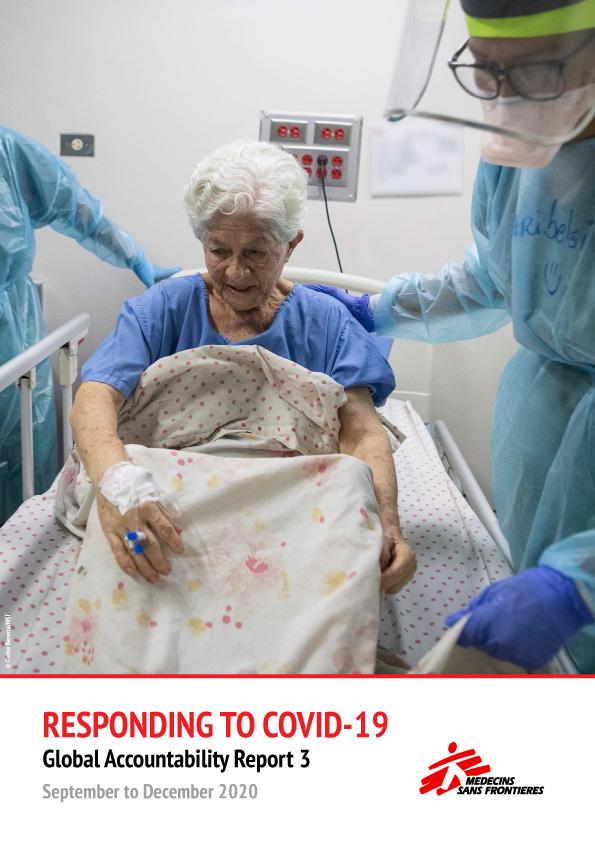Over the course of 2020, COVID-19 thrust the world into a severe global health crisis. The rapid spread of the novel coronavirus SARS-CoV-2 put a tremendous strain on healthcare systems in low- and high-resource settings alike, as large numbers of patients with potentially life-threatening respiratory disease required specialised care.
With no effective treatments available and stocks of personal protective equipment and essential medical supplies rapidly depleting, healthcare systems threatened to collapse under the weight of the pandemic. By the end of the year, more than 82 million COVID-19 infections had been recorded globally, and an estimated 1.82 million people had died from COVID-19 related complications.
From March to December 2020, Médecins Sans Frontières (MSF) responded to the pandemic through our existing programmes and dedicated COVID-19 interventions in more than 300 projects in 70 countries. Our global COVID-19 activities focused on delivering medical care and other assistance to vulnerable people at risk of being left behind, including remote communities, people on the move, homeless people, and elderly people living in long-term care facilities.
In health facilities and dedicated COVID-19 treatment centres across five continents, MSF teams worked alongside local healthcare workers to strengthen infection prevention and control measures, protect staff and treat patients. From early on in the pandemic, MSF also recognised the importance of maintaining other essential healthcare services amid lockdown and confinement measures.
In our own projects and in hundreds of health facilities around the globe, our teams worked tirelessly to keep essential healthcare services open — from treatment for HIV and tuberculosis patients to measles vaccination campaigns, malaria prevention, and responses to other infectious disease outbreaks, such as cholera or Ebola.
The third Global Accountability Report complements the first two editions and includes both a continued operational overview from September to December 2020, as well as an annual summary and analysis of key indicators.
